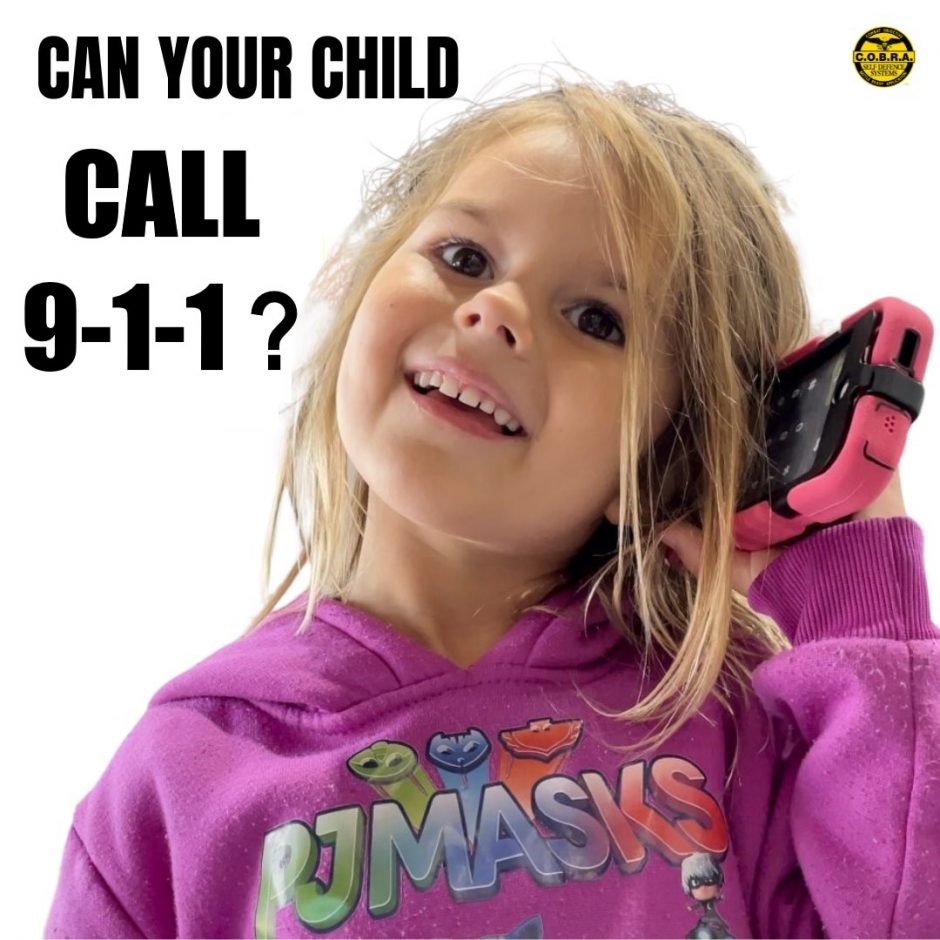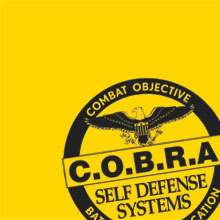
The who, what, when, where and why of your child and emergency calls is still one of the most important messages we like to share at COBRA Self Defense.
No parent ever wants to imagine that their children might face an emergency situation. However, an estimated 240 million million calls are made to 9-1-1 every year in the United States. In fact, even children as young as three have managed to save lives through calling the Emergency Services.
So if you haven’t taught your child how to call 911 yet, now is the time to do it, because when children are armed with knowledge they can face a situation with confidence and action rather than fear and panic. And that could literally be a matter of life and death.
Here are our top tips for teaching your child about 911 calls and when, how and why to make them.
THE NUMBER
First and foremost, make sure your child knows what number to call in case of an emergency. They may be able to remember they have to call ‘9-1-1’, but be sure to check that they know what the numbers look like.
DEMONSTRATE, PRACTICE, ROLE PLAY️Show your child how to use a landline phone and your mobile phone.
Remember, they will need to know:
👉🏼 What to press to turn a mobile phone on
👉🏼 What to press to override entering a passcode
👉🏼 How to open the keypad
👉🏼 How to enter the numbers
👉🏼 What to press to dial the number
EMERGENCY SPECIFICS️
Everyone needs to know about calling 000 in an emergency. But kids also need to know the specifics about what an emergency is. Asking them questions like, “What would you do if we had a fire in our house?” or “What would you do if you saw someone trying to break in?” gives you a chance to discuss emergencies and what to do if one happens.
EMERGENCY WORKERS️
For younger children, it might also help to talk about who the emergency workers are in your community — police officers, firefighters, paramedics, doctors, nurses, and so on — and what kinds of things they do to help people who are in trouble.
WHEN TO CALL 9-1-1
Your child should know that an emergency is when someone needs help right away because of an injury or an immediate danger. For example, they should call 9-1-1 if:
👉🏼 They are being followed
👉🏼 Someone tried to grab them
👉🏼 There’s a fire
👉🏼 Someone is unconscious after an accident, drinking too much, or an overdose of pills or drugs
👉🏼 Someone has trouble breathing, like during an asthma flare-up or seizure
👉🏼 Someone is choking
👉🏼 They see a crime happening, like a break-in, mugging, etc
👉🏼 There’s a serious car acciden
STAYING CALM️
Kids may feel scared or nervous if they have to call 9-1-1. Tell them that the emergency operators who answer the phone talk to a lot of kids who are nervous or worried when they call. Tell them to stay as calm as they can. Make sure your kids know that even though they shouldn’t give personal information to strangers, it’s OK to trust the 9-1-1 operator. Explain that the emergency operator will ask them what, where, and who questions such as:
👉🏼 “What is the emergency?” or “What happened?
👉🏼 “Where are you?” or “Where do you live?”
👉🏼 “Who needs help?” or “Who is with you?”
They should give the operator all the information they can about what the emergency is and how it happened. If they are old enough to understand, also explain that the emergency dispatcher may give first-aid instructions before emergency workers arrive at the scene.
OTHER THINGS TO KNOW ABOUT 9-1-1
Make sure your kids understand that calling 9-1-1 as a joke is a crime in many places. Every prank call or unnecessary call to 9-1-1 can delay a response to someone who needs help.
Kids should make sure they’re safe before calling 9-1-1. For example, if there’s a fire in your home, they should know to leave the house before calling 9-1-1.
Although most 9-1-1 calls are now traced, it’s still important for your kids to have your street address and phone number memorized.
Emergency calls and role-playing 9-1-1 call exchanges are one of the first things covered in the COBRA Self Defense Child Abduction Prevention training. This course will help your child learn, practice and affirm these essential safety skills, as well as a wide variety of other lifesaving child safety lessons.
Because one child is too many!Help your loved ones be educated, prepared and safe today.

